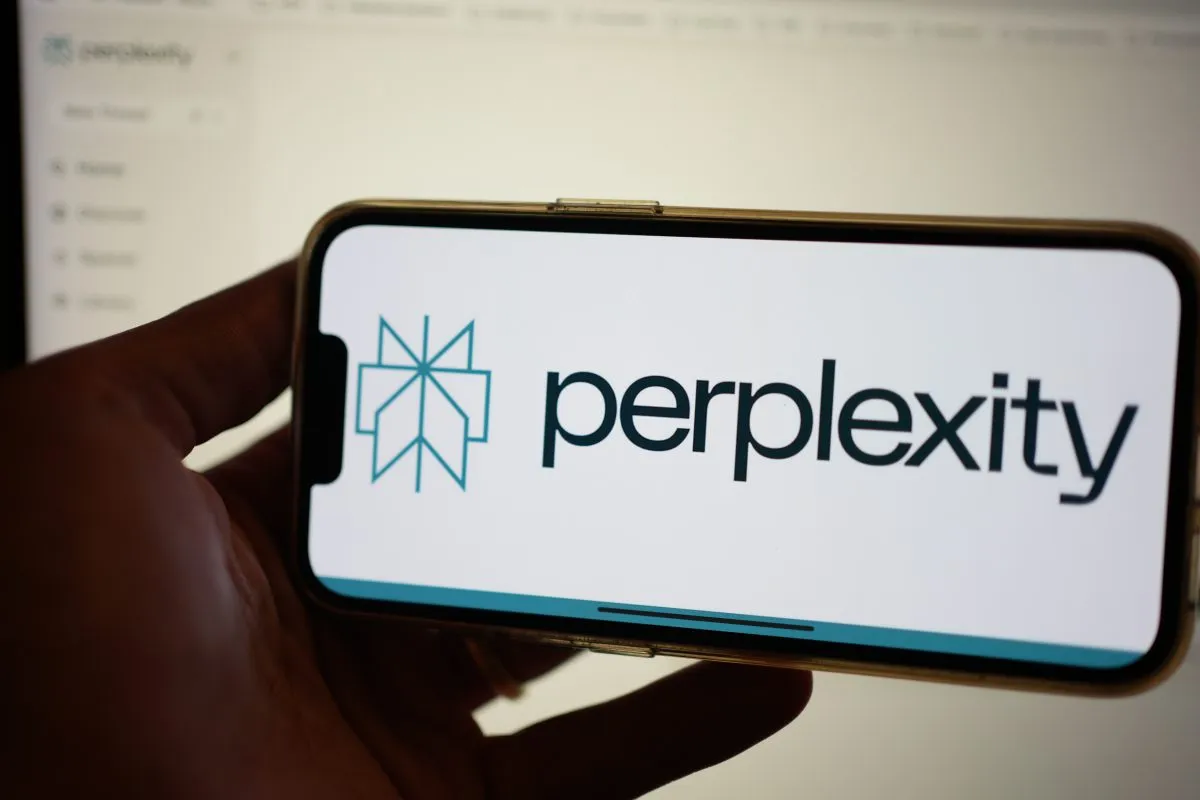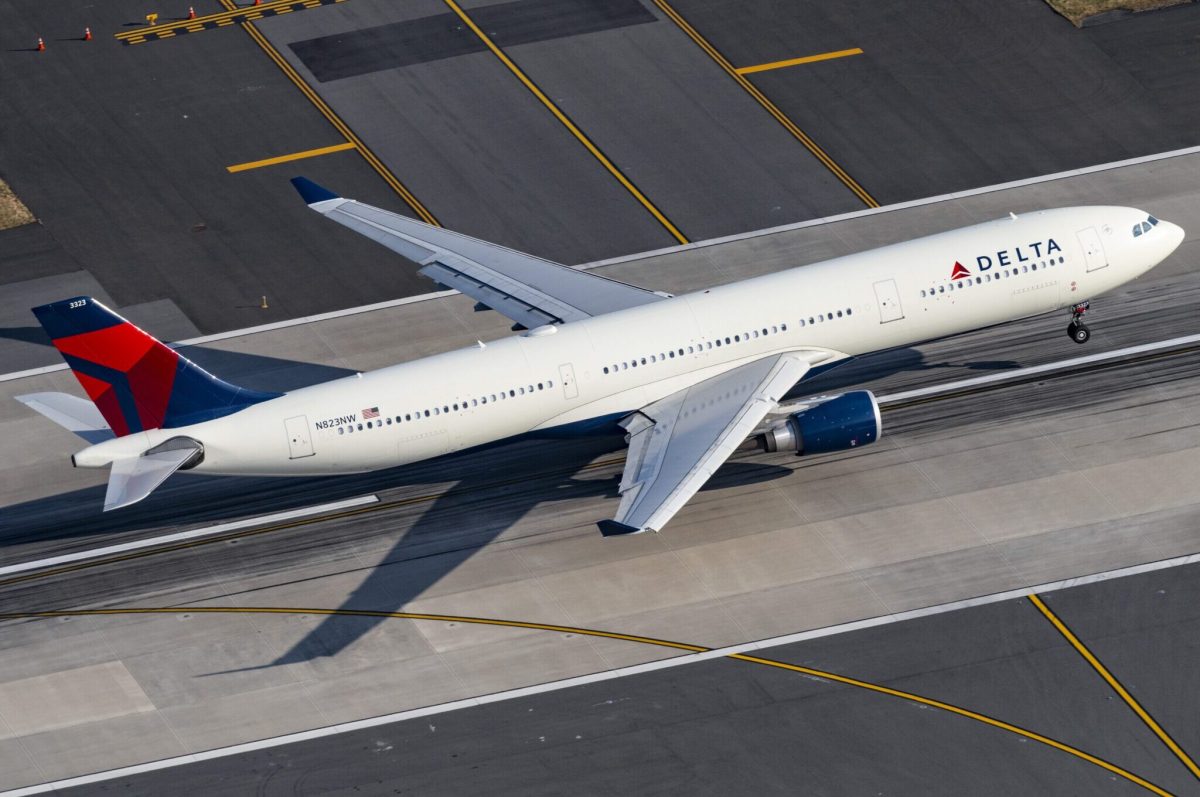Netflix and Streaming Video Are Replacing Hotel Pay-Per-View Entertainment

Skift Take
It might be crazy to think of this — especially at a time when some of us still agonize over the super-slow speed with which it takes to download a simple PDF in some hotel rooms — but we're calling it: In just a few years' time, it's highly likely that the Internet of Things (IoT) will be coming to a hotel room near you.
What does that mean, exactly? It means that the only "smart" product in your hotel room won't be limited to your phone anymore. It means that your TV, the temperature, the lighting, the curtains, will all be connected via the Internet, and controlled by the guest.
Robert Cole, the founder of RockCheetah, a hotel marketing strategy and travel technology consulting firm, envisions a future where guests won't even have to log in to access Wi-Fi.
"You can walk into a hotel and be on your mobile device, and whether you have a reservation or not, you can automatically log into the high-speed guest network," he said. "If you have a reservation, the hotel recognizes you're there and accessing the Wi-Fi or using Bluetooth smart beacons. You should be able to go up to your room and use your phone to get in and as soon as you enter, your Netflix will show up. Everything should happen seamlessly. Your apps and services will help you with your journey."
We're not there just yet, and there are still some obvious challenges for the IoT to work itself out, especially when it comes to cybersecurity. But there could be a day in the not-so-distant future when voice-activated rooms, like the ones being piloted by Aloft, will become the norm.
And even more likely? That we'll all be able to watch the latest season of Netflix's House of Cards or Amazon's Transparent from our hotel rooms.
Here's where we currently stand when it comes to in-room technology and entertainment.
Casting Call
More hotels are enabling guests to be able to watch streaming channels like Netflix and Hulu from their hotel room TVs, and exploring casting technology solutions to be able to do so.
In June 2015, Marriott became the first hotel chain to allow its guests to watch Netflix from their hotel room televisions. Working with hospitality technology provider Enseo (which has a partnership with Netflix), Marriott was able to allow guests to sign into their own Netflix accounts on their in-room TVs and watch their favorite shows, in addition to accessing other services such as Hulu and Pandora. Marriott expects to have 1,000 contracts for this signed by the end of 2017.
Scott Hansen, Marriott International director of guest technology, said that Marriott realized "the video-on-demand model wasn't sustainable anymore. People just weren't buying at the pace they were. You can't upgrade the infrastructure with ties to a video-on-demand operator. We had to go in a new direction. Guest habits have changed. They want more over- the-top content and less linear programming."
The solution, Hansen said, was to provide guests with access to everything "we take for granted in our own living rooms" and, since then, it's been a "tremendous success."
Enseo, the tech provider which Marriott worked with to bring Netflix and other streaming channels to hotel guest rooms, said that Netflix is consistently among the top three most watched channels among properties that use its technology. It accounted for 11 percent of total viewership time and was the No. 1 watched channel in July 2016. In July 2015, it was the No. 2 most watched channel and accounted for 7 percent of total viewership time.
Marriott's system for accessing channels like Netflix is simple enough: Guests simply log into their respective accounts on the TV screen. Typing in every email address and password on the TV, however, isn't always the most seamless.
"In a hotel room obviously typing in your credentials with a remote control is tedious," Hansen said. "Doing it from your mobile phone is easier." This is why other hotels, Marriott included, are exploring more options that enable guests to simply cast their entertainment preferences directly onto their TV screens.
Hansen said Marriott is currently in the process of debuting Connect My Device, which is based on Google Chromecast protocol and hardware. "We've patented a solution that allows for very simple pairing of a guest's device to the in-room TV," he said. "It's proprietary software we've developed that works with Chromecast products in guest rooms. Guests enter a simple code and it pairs their mobile device to the TV and isolates it to that room. It pairs it down to just the in-room one."
When Skift spoke with Hansen in October, he said Marriott was testing this new technology in 6 hotels and that several continents have already made this a brand standard for future Marriott properties.
Prior to its acquisition by Marriott, Starwood's Aloft Hotels were also piloting a somewhat similar system as well, called RoomCast. Sarah Downing, vice president of global guest initiatives and innovation for Aloft Hotels, told Skift that the RoomCast pilot at the Aloft hotel in New Orleans was a continuing process and that by November, the entire property will have the technology in every guest room.
Wyndham's Wingate by Wyndham brand is also piloting a casting service, working with Sonicast, which is powered by Google Chromecast. Lisa Checchio, VP of brand marketing and insights for Wyndham Hotel Group, told Skift that a pilot was launched in September at a property located outside of Chicago that is password-protected and secure.
"You can fully cast content from thousands of different apps without having to enter your personal credentials, without having to enter it into the personal TV, and it's automatically disconnected when you leave," she explained.
She added that this new technology is easy for hotel owners to implement as well because it "leverages existing infrastructure — wired or wireless," and that nearly 50 percent of the portfolio of Wingate owners wants to install the technology into their properties.
The Hotel TV Channel Evolves
While we, like most people, dread turning on the TV and having that default hotel channel pop up, many hotel companies are trying to update the content on those channels into something guests will actually want to watch.
Wyndham, for example, launched Wyndham Rewards TV earlier this summer with a series called, "Have Points, Will Travel." It follows a couple who was given a million Wyndham Rewards points to travel from Northern to Southern California on points alone.
"It's sort of like Modern Family meets the Amazing Race," Checchio explained. "There is so much you can do with in-room content that isn't just about the properties themselves. Guests want to be entertained."
For Wyndham's Hawthorn Suites brand, Checchio said Wyndham is thinking of, perhaps, showcasing "mini cooking demos" through the hotel TV channel, in conjunction with the brand's new Homemade at Hawthorn initiative. For this program, Wyndham partnered with two regional chefs who created an e-cookbook for guests staying at Hawthorn Suites.
In January, Marriott's Autograph Collection will debut an independent film channel. Working with FilmBuff, the channel will broadcast more than 1,500 different titles — films, documentaries, shorts, TV shows, and webisodes — that focus on art, design, food and music.
Earlier this year, Marriott Hotels also announced that it would include exclusive TED content in its in-room entertainment for guests. And Marriott International's own content studio continues to produce short films like the Two Bellmen series.
Infrastructure Is Getting Better
All of these innovations, such as casting, are indeed a step forward in terms of being able to better personalize the in-room guest experience. But they're often not possible for hotels to implement unless they have the tech infrastructure necessary to deliver these services.
That's why a number of hotel brands and individual properties are making major investments in technology infrastructure first, before they start testing out casting or voice-activated rooms, for example.
InterContinental Hotels Group (IHG) is doing so on a massive scale. The IHG Connect Internet initiative, which began last year, will impact 1,500 hotels in the Americas by the end of 2016 and, eventually, all of IHG's more than 5,000 hotels worldwide, bringing faster, more reliable, and more seamless Internet access to guests.
"This is a foundational platform for the future of IHG," Jeff Eckard, VP of technology for the Americas at IHG told Skift. The reason IHG is investing so heavily in this is because the number of devices in use worldwide is expected to increase to 33 billion by 2020, and each person is estimated to have approximately 4.3 connected device by 2020 as well.
IHG Connect involves the placement of multiple wireless access points throughout each hotel that increase bandwidth by at least four times, creating "dedicated pipes that can grab as much connectivity that's needed so hotel owners don't have to worry about how much bandwidth they've signed up for, and hotel guests won't become frustrated," Eckard explained. Those wireless points also contain built-in beacons and all are connected to a cloud-based tech platform that allows IHG to monitor each access point and implement changes that much more easily. Guests will log in once, and then have access their entire stay.
In a similar fashion, Samsung is working with hotels to deliver a similar type of technology and Internet speed for hotel guests with its Samsung Hospitality Wall Plate access point. Earlier this year, the company partnered with New York's Le Parker Meridien hotel to test the service in the hotel, and the results, said John Yu, director of management systems for Le Parker Meridien, were a success.
"At any given time, we have 800 to 1,400 devices running on our network," Yu said. "But during our peak evening hours, we typically have over 2,000 devices connected to the network simultaneously." By placing these access points throughout the hotel, however, Yu said, "We used to have difficulty providing a quality network experience when we hosted gaming or movie companies because of their VPN, static IP, speed and coverage needs. But our new access points are robust enough to take care of these issues."
Having all of these access points in place, IHG's Eckard said, will help IHG further strengthen its loyalty program (all loyalty members get access to free Wi-Fi) and that because the system auto-recognizes guests, it will automatically be able to connect them to Wi-Fi more easily. With the beacons, he said, "We can turn on location-based services, and start to recognize and connect and personalize the experience for our guests."
Beacon-based technology is something being piloted by Hilton and Marriott, enabling both companies to know exactly where their guests are on property and sending them targeted marketing messages or offering them customized information.
Eckard added, "This is just the beginning. This is the beginning of our journey. IHG connect is laying down the foundation to help us personalize the guest experience and deliver faster performance. Those latest devices are all engineered to go faster and faster, and we're enabling those devices to go as fast as they can."
Smart Hotel Rooms
Having that kind of an infrastructure in terms of connectivity lays the groundwork for what's to come: smart hotel rooms, or even voice-activated guest rooms.
"Voice-activated rooms have been a home run for us," said Aloft Hotels' Downing. "We've gotten a ton of feedback from our guests and operators as well. They're asking us: 'How do we add in-room delivery on the app so guests can order meals that come to their room? How can we add electronic drapes there when the sun is rising, or come up when sun is setting? It's all about putting control in the guest's hands."
Some critics have said the Aloft pilot with Siri, while novel and tech-forward, can be a bit cumbersome because of the instructions involved and that some guests would rather just use the provided in-room iPad to adjust things in the room instead of using their voice.
To that point, Downing said, "That's why piloting in the space is so important. You're listening to the guest to tell you what's too much versus what they want more of. A person not comfortable about the temp can just tell Siri without getting out of bed. We're also looking at the voice-activation and making it acceptable for those who aren't as comfortable with being future forward. If you don't want to speak to Siri you just pick up the iPad and you can use it just as you would with your own personal devices."
While many agree that voice-activated mechanisms like search by voice will be crucial going forward, including the founders of Expedia and Priceline, not everyone is so convinced it's worth the return on investment when it comes to hotels.
"The future of the guest room will be voice activation," said Marriott's Hansen. "Amazon Echo and Apple's Siri are consumer versions of this technology. I have all that in my own home. That is the future. Whether we use that existing tech or some other voice-activated mechanism has yet to be determined. The real brick in the road is trying to get the Internet of Things upgraded to the net-connected appropriate part of the network. It's very expensive to retrofit everything in a hotel."




